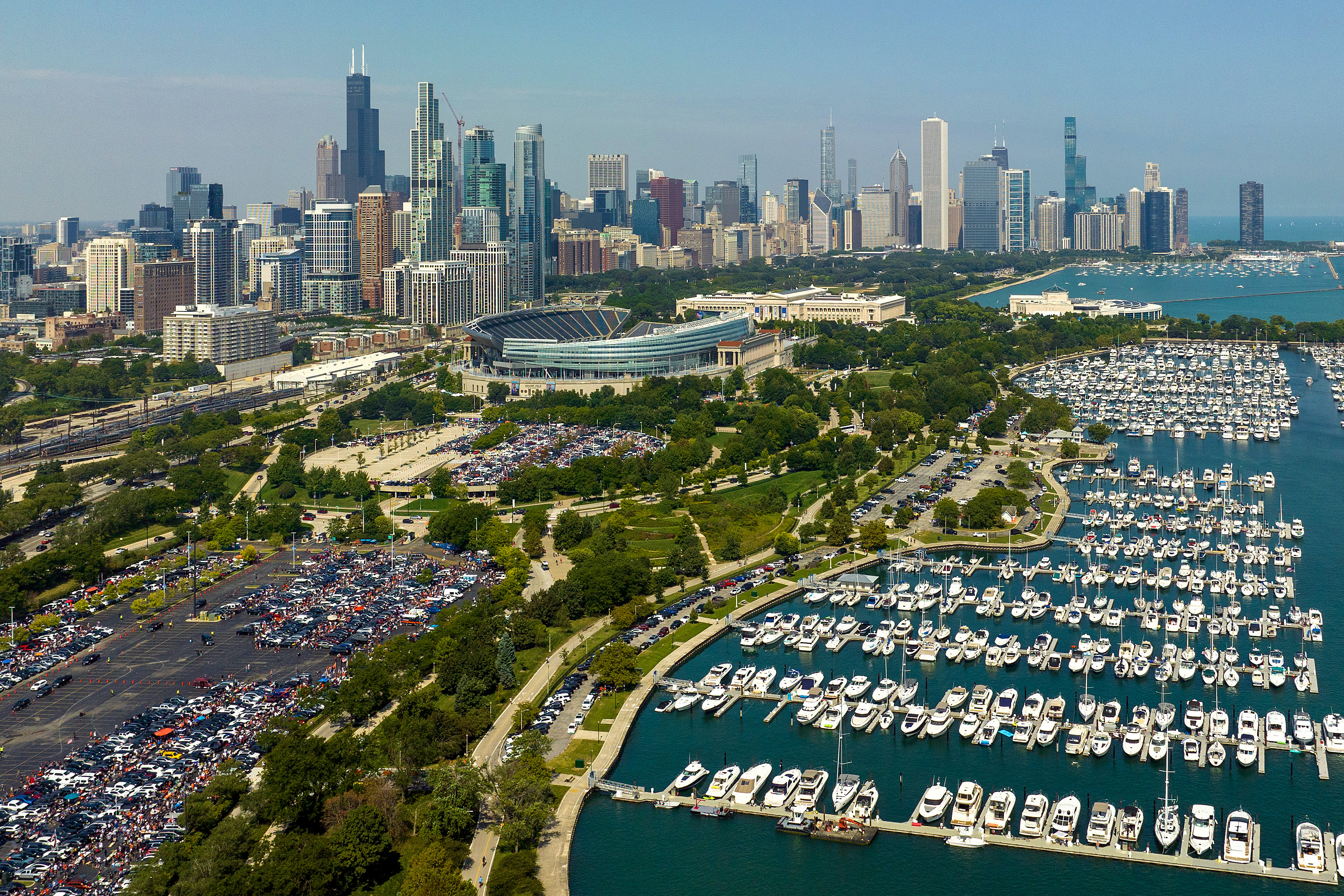A development group unveiled a proposal over the weekend to dramatically renovate Chicago’s Soldier Field and areas surrounding the stadium, but the plan could face a series of serious obstacles before it could even get off the ground.
The project would not only add a dome to the historic stadium, but it would also add seating capacity and completely transform the area surrounding the venue with an entertainment district and a transit center dedicated to getting fans and residents in and out of the area.
Robert Dunn, president of the Landmark Development group that spearheaded the video showcasing the proposed renovations, says that the project would address numerous concerns about the stadium.
“The advantage Chicago has is that you have this unbelievable collection of civic and cultural assets, and what’s missing is entertainment and transportation,” he said.
Feeling out of the loop? We'll catch you up on the Chicago news you need to know. Sign up for the weekly Chicago Catch-Up newsletter here.
Dunn says that a dome would be the key change to the stadium, allowing it to host premier events like the Super Bowl and the NCAA Final Four.
“If you dome it, it does give you the ability to host Super Bowls, Final Fours, and a lot of signature events that cities are known for,” he said.
Another benefit, Dunn says, is that the renovation of the stadium would ultimately cost less than constructing a new stadium, but projections still indicate that the project could potentially cost upwards of $2 billion, and that number does not include any other work in the surrounding areas.
Local
The proposed transportation center and entertainment district could potentially cost upwards of $3.8 billion, Dunn says.
It’s unclear how much of the burden taxpayers would shoulder, with Chicago officials still evaluating the project’s costs.
That comes as Illinois taxpayers remain on the hook for $600 million in payments dating back to a renovation undertaken at the stadium in 2002.
The advocacy group Friends of the Parks has also said that they would seek feasibility studies on the project, and that they would consider legal action if the project calls for "commerical real-estate structures on Chicago's protected lakefront parkland."
Aside from the financial costs is the reality that the Chicago Bears have indicated that they are only pursuing a stadium project in suburban Arlington Heights, with the team negotiating the details of a purchase agreement of the Arlington International Racecourse site.
Mark Ganis, an influential sports consultant, says that the Bears are likely to end up at the suburban site, and that rumblings Chicago could pursue another NFL team are unrealistic.
“The chances of attracting another NFL team to play in Soldier Field when the Bears move to Arlington Heights is zero,” he said.
Under the league’s territorial rights policy, the Bears would have the right to reject another team moving to Chicago if they move to Arlington Heights.
With or without an NFL team, Landmark Development says they are still interested in building a new transit center and entertainment district at the site, but feasibility studies have not yet been undertaken to determine the scope and cost of such a project.



